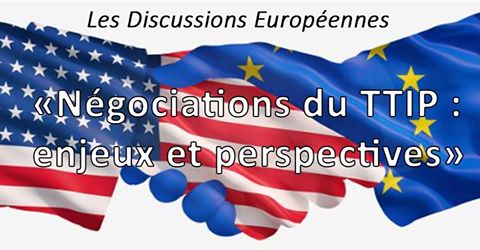
Accelerating Growth through PPPs
Date
Address
Section
Event Location
Event Description
Hosted by MEP Nirj Deva
Following four successful workshops on African agriculture organised by Mazungumzo, this conference will unpack the crucial importance of Public - Private Partnerships (PPP) in developing countries. PPPs provide a framework through which both governments and private industry can seek to achieve sustainable economic development as well as secure positive social change. PPPs critically channel the technical expertise of Government while harnessing the resources and on-the-ground experience of private industry.
Under the auspices of the Vice-Chair of the European Parliament Development Committee, Nirj Deva MEP, this Roundtable aims to provide real life models of constructive interaction between government and business to achieve sustainable economic development, contributing to local and regional development, especially in the agriculture sector. PPPs may represent the solution to the need for innovative governance within the agro-food sector and respond both to the more communal nature of developing countries agricultural traditions and the challenge of land ownership in many African countries.
Agriculture is the cornerstone of many developing economies and millions of livelihoods depend on it, notably in Tanzania, Ethiopia, Democratic Republic of Congo, Zimbabwe, Malawi and Zambia. This dominance and its capacity to positively contribute to economic and social growth, require reflection on the challenges and opportunities faced by operators in the agriculture value chain. This is particularly crucial, given the centrality of the EU market for third country agricultural exports, illustrating the interdependence between African agricultural production and the European market.
Additionally, key labour issues in agriculture, including rural development, child labour and sustainable agriculture practices are key to discussing agriculture development in Africa and elsewhere, given the substantial share of employment this sector contributes. Labour practices in agriculture need to be explored to highlight the progress made in achieving national and international commitments, the impacts and challenges of such commitments as well as opportunities for improvement that may come hand by hand with the Economic Partnership Agreements. This EMRC and Mazumgumzo Roundtable provides an opportunity for stakeholders, in both Africa and Europe, to share their local experiences and unpack the most important issues impacting agricultural development, to seek practical and innovative policy solutions.
Participation is free, but reservation is required by 18 October. Please include full name, organisation and position in your confirmation email to mg@emrc.be.
16:00 | Welcome
16:20 | Opening Speech & Inauguration of Exhibition by MEP Nirj Deva, Vice-Chair, Committee on Development, European Parliament
16:35 | Introductory remarks by Prof. Stefan Schepers, Chairman, Mazungumzo Governing Council
16:50 | The Importance of Public-Private Partnerships in ACP countries by H.E. Tadeous Tafirenyika Chifamba, Ambassador of Zimbabwe to the EU
17:20 | How best to get Public and Private Sectors working together towards Sustainable Development - H.E. Robert Dufter Salama, Ambassador of the Republic of Malawi to the United Nations Office, Geneva - H.E. Joseph E. Sokoine, Ambassador of the United Republic of Tanzania to the BELUX (tbc) - H.E. Ammo Aziza Baroud, Ambassador of Chad to the EU - H.E. Dr. Patrick I. Gomes, Secretary General of the ACP Group of States - Elaine McKay, Social Programs Director, JTI - Joan Lanfranco, Advocacy Officer of the International Trade Union Confederation (tbc)
18:20 | Q & A
19:15 | Concluding remarks by Idit Miller, Vice President & Managing Director, EMRC
19:30 | Walking dinner
Related Events
• Reform of CEAS
• External dimension of crisis management
• Asylum-seekers with special needs
Language: English
Organiser: Dr Karine Caunes (ERA)
Event number: 417R05
Objective
Oceans cover more than two-thirds of our planet. They are rich in resources and provide people with food, energy, and a stable climate.
60 Years after the signing of the Rome Treaty, Europe is not a pretty sight. The UK is leaving after a guest performance of 44 years; populism and Euroscepticism prevail in many Member States; the days of an ‘ever closer union’ seem to be numbered.
This year’s seminar builds on the 2016 ISC science-for-development seminar, which helped to advance the agenda for Europe-Africa cooperation, especially in the science field.
To find out more, please visit http://www.socialistsanddemocrats.eu/withafrica
An analysis presented by academic experts from the United States of America
HOW CAN EUROPE LEAD ON FINDING A SUSTAINABLE SOLUTION FOR SYRIA?
A DISCUSSION WITH SYRIAN CIVIL SOCIETY
Title: Success in EU Negotiations: The Key Skills for Shaping EU Decisions in Commission Committees and Council Bodies, EIPA
Join the European Movement to debate the latest developments in Pola
SAVE THE DATE!
Brussels 08/01/2016





























